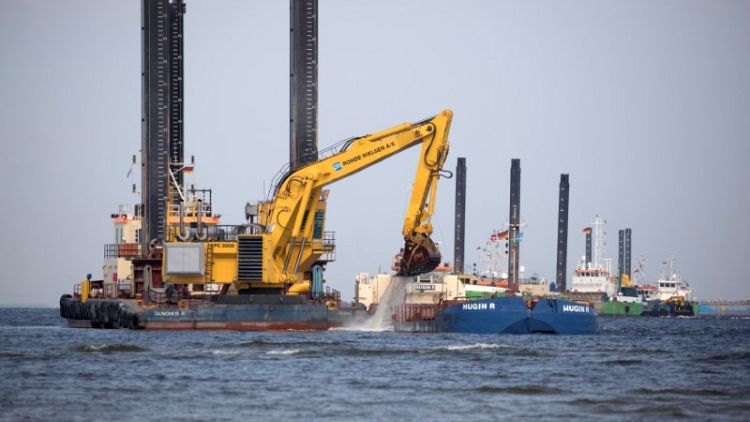BRUSSELS (Reuters) - New European Union rules to regulate Russia's Nord Stream 2 pipeline won the backing of the bloc's capitals on Friday, a move that will likely complicate but not rule out its construction.
Representatives of the EU's 28 nations endorsed a last ditch German and French proposal to amend some of the language of the new rules on how to regulate the pipeline project.
The two major European powers, which both have energy firms invested in the new gas link across the Baltic Sea, were publicly at odds ahead of the EU meeting.
The initial proposal would extend the EU's internal energy market laws to offshore gas pipelines under construction, giving it a say over how the pipeline is operated.
Diplomatic sources had said that Germany had pressured other European capitals to block the new directive.
Former German chancellor Gerhard Schroeder is chairman of Nord Stream's shareholders committee.
In its current form, Nord Stream 2, being built by Russian state energy firm Gazprom <GAZP.MM>, would not comply with tougher new rules foreseen for new infrastructure projects.
The newer draft, seen by Reuters, suggests Berlin is looking to take the lead on authorising the pipeline, which will run from Russia directly to Germany.
"The aim of the proposal is ... to clarify that the mentioned rules refer to the territory and the territorial sea of the member state concerned," the proposal states, adding that refers to the first point of connection with the grid.
EU sources said the proposed changes would make it more difficult and expensive to build the pipeline but would permit it to go ahead.
Any delay in building the pipeline would create uncertainty for Gazprom's partners: Germany's Uniper <UN01.DE> and BASF's <BASFn.DE> Wintershall unit, Anglo-Dutch firm Shell <RDSa.L>, Austria's OMV <OMVV.VI> and France's Engie <ENGIE.PA>.
The EU is divided over in the project.
Eastern European, Nordic and Baltic Sea countries see the 1,225 km (760 mile) pipeline increasing EU reliance on Moscow, while those in northern Europe, especially Germany, prioritise the economic benefits.
(Reporting by Peter Maushagen and Alissa de Carbonnel; editing by Francesco Guarascio and Jason Neely)



